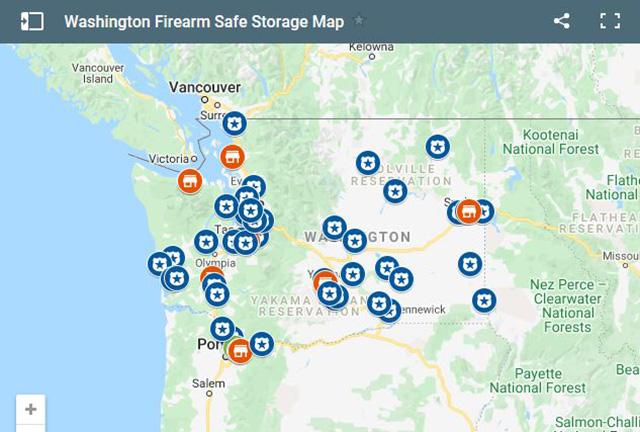
A new interactive map is now available to help people in crisis find temporary firearm storage facilities in their community. Currently, 59 locations in Washington state are listed. This is the first map of its kind created in the state.
Researchers in the Firearm Injury & Policy Research Program at UW Medicine’s Harborview Injury Prevention and Research Center created this map to help people in need, such as those feeling suicidal, locate an out-of-home firearm storage solution. The businesses and law enforcement agencies listed on the map are willing to consider requests for temporary or voluntary firearm storage.

“Seventy-five percent of firearm deaths in our state are due to suicide. Temporarily removing firearms from the home and storing them elsewhere may be life-saving for a family member,” said Dr. Fred Rivara, director of the map project, and professor of pediatrics at the University of Washington School of Medicine.
Before taking firearms to a safe storage location, people are asked to contact the business or agency. Many sites listed have different processes for storing firearms. Some have a fee and limits to storage duration. Others may conduct a background check when they return the firearms. It’s important to note that each retailer offers storage on a case-by-case basis.
Police stations request calling ahead of time to make arrangements. People should ensure firearms are locked in a case or are left locked and hidden from sight inside a vehicle while they make arrangements with law enforcement agencies. Some police stations may have a pick-up service as well.
The map project at UW Medicine’s Harborview Injury Prevention and Research Center is part of its efforts to reduce firearm injuries and death. These include encouraging programs in suicide prevention, safe storage of firearms, domestic violence prevention, examination of effectiveness of legislation and policy, and other issues. The Firearm Injury & Policy Research Program is a nonpartisan organization that does not advocate or endorse any particular political viewpoint.
The program suggests these help lines that are available to the public: